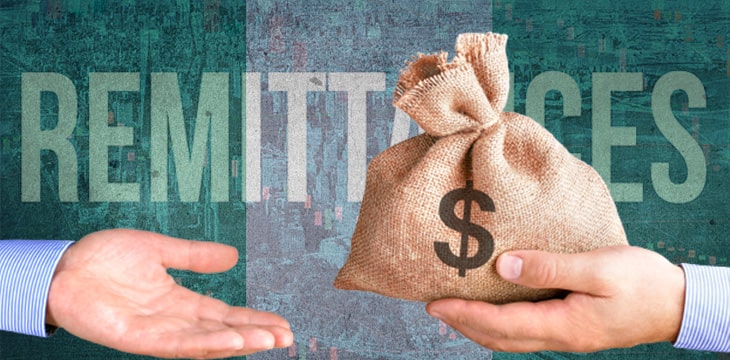|
Getting your Trinity Audio player ready...
|
Nigeria’s central bank is not a big fan of digital currencies. In its latest effort to clamp down on the nascent industry, it is now rewarding citizens who opt for formal remittance channels over digital currency-powered platforms. It does this at a time when inflows via mainstream channels have plummeted by over 97%.
The Central Bank of Nigeria (CBN) announced its “Naira 4 Dollar Scheme” recently, targeting diaspora remittances.
“In an effort to sustain the encouraging increase in inflows of diaspora remittances into the country, the Central Bank of Nigeria hereby announces the introduction of the “CBN Naira 4 Dollars Scheme”, an incentive for senders and recipients of international money transfers,” the notice reads.
The scheme will reward every citizen who uses an international money transfer operator 5 naira ($0.13) for every $1 they receive. Citizens will receive this reward whether they choose to collect the USD as cash over the counter in a bank or transfer it into a domiciliary account. The promotion kicked off on March 8, and shall run until May 8.
CBN’s newest attempt to promote mainstream payment system comes at a time when it has waged full-on war against digital currencies. The central bank has prohibited banks from processing transactions relating to digital currencies.
However, the current promotion is much more targeted towards cutting down the ever-rising market share that digital currency-powered remittance platforms have been gobbling up. According to Nairalytics, a local data analytics platform, remittances through the mainstream channels have dropped drastically.
In January 2020, the country received $2.05 billion via these channels. This figure halved the next month and has been dropping steadily, with the West African country recording a mere $54.4 million via mainstream channels in September.
Direct remittances into Nigeria declined by 97.3% between January & September 2020
Jan 2020 – $2.05bn
Feb 2020 – $1.02bn
Mar 2020 – $444.8m
Apr 2020 – $392.3m
May 2020 – $252.8m
Jun 2020 – $446.2m
Jul 2020 – $118.8m
Aug 2020 – $217.8m
Sep 2020 – $54.4m[CBN, #Nairalytics]
— Nairalytics (@Nairalyticsdata) January 19, 2021
The drastic drop has come at a time when digital currency-powered channels have recorded a steady rise. These platforms, including Centbee’s Minit Money, have obvious advantages over their mainstream rivals, including near real-time transactions and very low fees.
In Nigeria, however, the advantages extend beyond these. According to Tomiwa Lasebikan, the founder of local exchange Buycoins Africa, these platforms also offer better exchange rates. The Nigerian government has set a fixed exchange rate for mainstream platforms. Digital currency platforms are able to operate on a parallel rate, usually 20%-30% higher. This makes them particularly attractive especially to those involved in the import and export business.
See also: CoinGeek Live panel, Digital Currency & Global Compliance: Tools & Tips for Exchanges, Wallets & Other Service Providers

 03-05-2026
03-05-2026 




